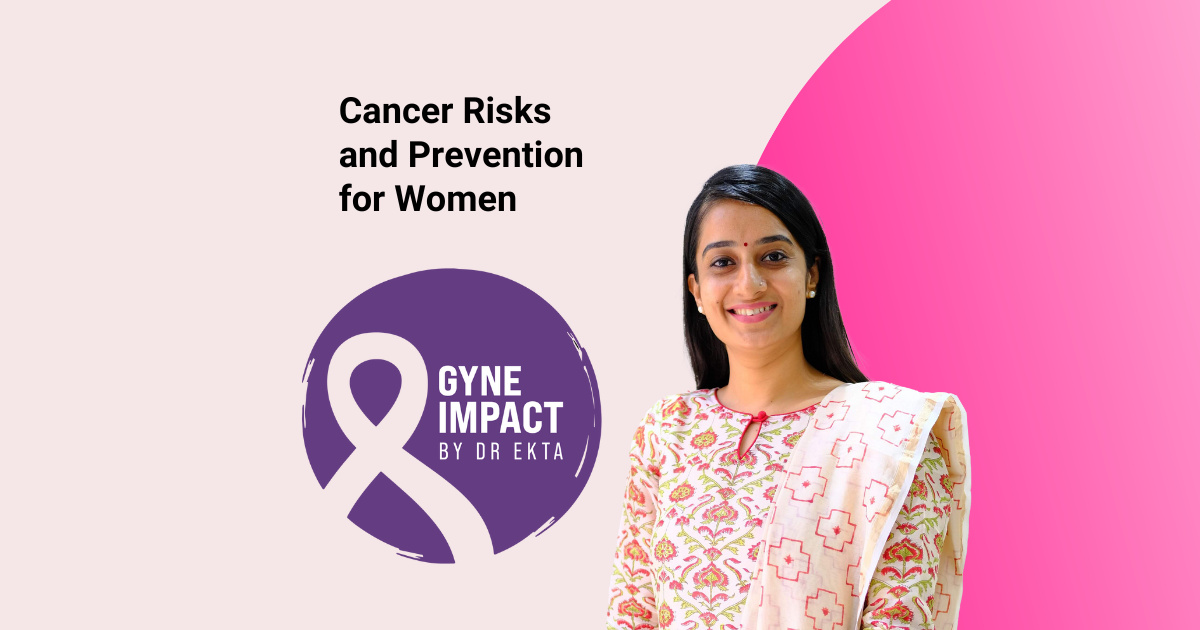I often meet women who are surprised to learn about the unique cancer risks they face. While cancer can affect anyone, women have specific vulnerabilities due to their biology, lifestyle factors, and societal roles. Understanding these risks is the first step toward prevention, and prevention is a powerful tool we can all embrace.
In this blog, I aim to provide an overview of the common cancer risks for women, ways to minimize those risks, and practical steps toward leading a healthier life. Let’s walk this path together, empowering ourselves with knowledge and action.
Understanding Cancer Risks for Women
Women are more likely to develop certain types of cancers due to hormonal fluctuations, reproductive factors, and genetic predispositions. Some of the most common cancers in women include:
- Breast Cancer
The most frequently diagnosed cancer in women, breast cancer accounts for a significant proportion of cancer cases globally. Factors like age, family history, and hormonal replacement therapy (HRT) can increase the risk. - Cervical Cancer
Caused primarily by the Human Papillomavirus (HPV), cervical cancer is highly preventable with vaccination and regular screenings. - Ovarian Cancer
Often called the “silent killer,” ovarian cancer typically presents with vague symptoms that are easily overlooked. Family history and age are critical risk factors. - Endometrial (Uterine) Cancer
Linked to hormonal imbalances, obesity, and conditions like polycystic ovary syndrome (PCOS), endometrial cancer is another common cancer in women. - Lung Cancer
While smoking is a significant contributor, non-smokers exposed to secondhand smoke or environmental pollutants are also at risk.
Common Factors That Increase Cancer Risks in Women
Several factors elevate cancer risks in women, many of which can be managed or mitigated with the right approach:
- Genetic Predispositions
Women with BRCA1 or BRCA2 gene mutations face a higher risk of breast and ovarian cancers. Genetic testing can provide valuable insights into your personal risk profile. - Hormonal Factors
Hormone levels, especially estrogen and progesterone, play a role in breast and endometrial cancers. Starting menstruation early, late menopause, or prolonged hormone therapy can increase cancer risks. - Lifestyle Choices
Sedentary lifestyles, poor diet, smoking, and excessive alcohol consumption are significant contributors to cancer risks. - Obesity
Being overweight increases the risk of several cancers, including breast, endometrial, and ovarian cancers, due to increased estrogen levels stored in fat tissue. - Age and Reproductive History
Women who have their first child after 30 or never have children face higher risks of breast cancer. Similarly, a late or absent menopause can raise risks due to prolonged exposure to hormones.
Steps to Minimize Cancer Risks
While not all cancers are preventable, many cancer risks can be significantly reduced through proactive measures. Here’s what I often recommend to my patients:
- Regular Screenings
Early detection saves lives. Mammograms, Pap smears, and HPV tests are crucial in identifying cancer at its earliest and most treatable stages. - Vaccinations
The HPV vaccine is highly effective in preventing cervical cancer. Women and girls aged 9–45 should consider getting vaccinated. - Healthy Lifestyle Choices
- Eat a Balanced Diet: Focus on whole foods rich in antioxidants, fiber, and healthy fats. Avoid processed foods, excessive sugar, and red meat.
- Stay Active: Engage in at least 30 minutes of moderate exercise most days of the week to maintain a healthy weight.
- Quit Smoking: Tobacco use is a leading cause of cancer. If you smoke, seek support to quit as soon as possible.
- Limit Alcohol: Excessive alcohol intake increases the risk of breast and liver cancers.
- Manage Hormonal Health
Discuss alternatives to hormone replacement therapy with your doctor, if applicable. Birth control pills may slightly increase certain cancer risks but reduce others—your doctor can help you weigh the benefits and risks. - Know Your Family History
If cancer runs in your family, genetic counseling and testing can help you understand your cancer risks and consider preventive options like enhanced surveillance or prophylactic surgeries.
Emotional and Mental Health: A Hidden Factor
Cancer prevention isn’t only about physical health. Stress and anxiety can weaken your immune system, making you more vulnerable to illnesses, including cancer. As women, we often juggle multiple roles, which can lead to chronic stress.
I encourage my patients to prioritize self-care. Mindfulness practices, regular sleep, and maintaining a support system can improve overall health and reduce cancer risks indirectly.
Hope Through Awareness
It’s essential to remember that knowledge is power. By understanding cancer risks specific to women, you can make informed decisions that significantly reduce your chances of developing cancer. Prevention doesn’t eliminate the possibility of cancer entirely, but it equips you with the tools to live a healthier and more resilient life.
Final Thoughts
Cancer remains a significant health challenge, but together, we can reduce its impact. As women, we have the unique opportunity to lead by example, nurturing ourselves and inspiring those around us to adopt healthier habits.
If you have questions about your cancer risks or prevention strategies, don’t hesitate to reach out to your healthcare provider. Remember, the choices you make today can shape your tomorrow. Prevention starts with awareness, and awareness starts with you.
Stay informed, stay proactive, and take charge of your health.

